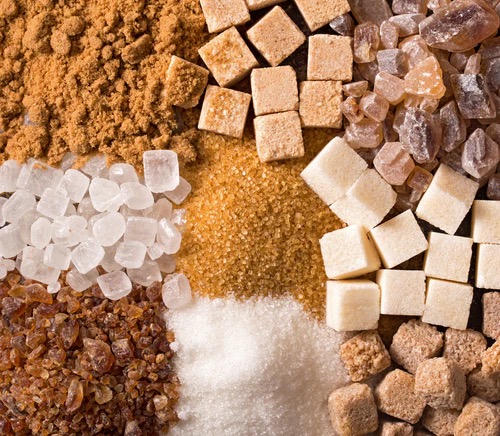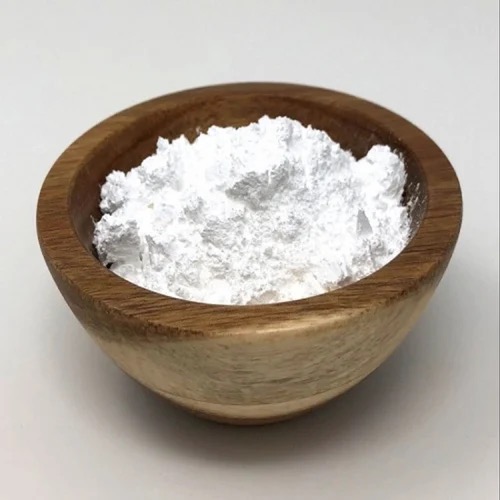







Content Menu
● Understanding Sweeteners: Types and Applications
● The Controversy: Sweeteners and Weight Gain
● How Do Sweeteners Influence Weight Gain? Biological Mechanisms
● Comparing Sweeteners: Natural vs. Artificial
● Industry and Consumer Perspectives
● FAQ About Sweeteners and Weight
>> 1. Do all sweeteners cause weight gain?
>> 2. Can sweeteners help with weight loss?
>> 3. Are natural sweeteners safer than artificial ones?
>> 4. Do sweeteners affect appetite or hunger?
>> 5. What sweeteners are recommended for people with diabetes?
In recent years, sweeteners have become a staple in many diets worldwide, seen as a promising alternative to sugar for those aiming to manage weight and improve health. However, the question remains contentious: Do sweeteners make you fat? This comprehensive article explores the current scientific understanding of sweeteners—both natural and artificial—and their impact on body weight, fat accumulation, and metabolic health. It also highlights findings from recent studies shedding light on how sweeteners interact with the brain and body, providing useful insights for consumers and manufacturers, particularly in the food, beverage, and healthcare industries.

Sweeteners are broadly defined as substances added to food and drinks to provide sweetness. They are classified into two main categories:
- Nutritive Sweeteners: These include natural sweeteners like stevia and monk fruit extracts, as well as sugar alcohols (polyols) like xylitol and erythritol that provide fewer calories than regular sugar but still contribute some energy.
- Non-Nutritive Sweeteners: Also called artificial sweeteners, this group includes aspartame, saccharin, and sucralose. These sweeteners provide minimal to zero calories but are often many times sweeter than sugar.
Within the food and healthcare industries, natural sweeteners and functional polyols are prized for their health benefits and lower caloric content. Many manufacturers, including Chinese firms specializing in natural sweeteners, functional polyols, and dietary fibers, provide products and services such as custom sweetener blends, tablet production, and OEM/ODM solutions to overseas customers.
The central debate hinges on whether sweeteners contribute to weight gain and fat accumulation despite their low or zero-calorie profiles. The scientific community has produced mixed evidence:
- Long-term Fat Accumulation Linked to Some Artificial Sweeteners: A landmark 20-year study led by the University of Minnesota examined the habitual dietary intake of adults, focusing on artificial sweeteners. It found that long-term consumption of aspartame and saccharin, as well as diet beverages containing these sweeteners, was associated with increased fat stores in the abdomen and inside muscles, even when accounting for total calorie intake and diet quality. Sucralose, however, showed no such association with fat volume in this study. These findings challenge earlier views that artificial sweeteners are metabolically inert concerning fat gain and raise caution about recommending these sweeteners for weight control.[1]
- Artificial Sweeteners and Appetite Stimulation: Supporting these findings, recent research from the University of Southern California shows that sucralose consumption can paradoxically increase hunger. In a controlled trial, participants who drank water sweetened with sucralose reported a nearly 20% increase in appetite compared to those consuming sugar-sweetened or plain water. Brain scans revealed heightened activity in regions responsible for hunger regulation after sucralose intake, suggesting that sweetness without calories may confuse the brain, prompting increased food intake to compensate for the missing energy.[2][3]
- Clinical Recommendations and Warnings: Responding to accumulating evidence, the World Health Organization issued guidance warning against using artificial sweeteners as a weight-loss tool, emphasizing the need for alternative approaches to sugar reduction. The American Diabetes Association and the American Heart Association, which recently endorsed replacing added sugars with artificial sweeteners, face increasing scrutiny amid these findings.[1]

Several mechanisms may explain why some sweeteners could contribute to fat gain despite low calories:
1. Disruption of Appetite and Reward Systems: Sweetness typically signals calorie intake, but with artificial sweeteners, the brain receives conflicting signals of sweetness without energy. This may dysregulate appetite control, increasing hunger and cravings as the body searches for missing calories.[3][4]
2. Altered Metabolism and Gut Microbiome: Artificial sweeteners can impact gut bacteria, driving dysbiosis and metabolic changes linked to weight gain and insulin resistance. Some studies find that sweeteners like aspartame and sucralose influence glucose metabolism and insulin secretion, potentially increasing diabetes risk.[4][5]
3. Behavioral Compensation: Consuming sweeteners may lead some individuals to justify eating higher-calorie foods later, offsetting the reduction in calories from sweeteners.
4. Changes in Fat Deposition Patterns: Research suggests sweeteners may promote visceral and intramuscular fat accumulation, which is metabolically harmful and linked to elevated cardiovascular risk.[1]
| Sweetener Category | Examples | Calories (per gram) | Common Uses | Weight Impact |
|---|---|---|---|---|
| Natural Sweeteners | Stevia, monk fruit | ~0-2 Calories | Beverages, snacks, health products | Generally neutral, may aid weight management |
| Polyols (Functional) | Xylitol, erythritol | ~1.5-2.5 Calories | Sugar-free gum, candy, pharmaceuticals | May aid weight control, some laxative effect |
| Artificial Sweeteners | Aspartame, saccharin, sucralose | Negligible | Diet sodas, low-calorie products | Mixed evidence; aspartame and saccharin linked to fat gain, sucralose appetite increase |
Natural sweeteners and polyols tend to have fewer negative effects and may offer benefits like glycemic control. Artificial sweeteners remain controversial, with studies showing potentially adverse metabolic effects, especially with long-term use.
For manufacturers designing sweetener blends and products targeting health-conscious consumers, these findings underscore the importance of selecting sweeteners that balance sweetness, safety, and metabolic effects. Chinese companies specializing in natural sweeteners and functional polyols are well-positioned to innovate with blends that minimize potential risks while meeting consumer demand.
Consumers should be educated to understand that while sweeteners can reduce sugar calories, they are not a free pass to unlimited consumption. Moderation and holistic dietary habits remain the cornerstone of weight and health management.
While sweeteners provide an important alternative to sugar and a tool for calorie reduction, evidence increasingly suggests that some artificial sweeteners like aspartame and saccharin are linked to increased fat accumulation and appetite stimulation when used long-term. Sucralose, despite lower association with fat gain, can increase hunger and potentially lead to overeating.
Natural sweeteners and functional polyols offer promising alternatives, often with fewer metabolic concerns. However, the complex pathways through which sweeteners affect brain regulation, gut microbiota, and metabolism mean that all sweeteners should be consumed thoughtfully.
For producers and consumers alike, understanding the nuances of different sweeteners is critical to making informed, healthful choices that support weight control and overall well-being.

Not all sweeteners cause weight gain. Natural sweeteners and polyols tend to be neutral or beneficial, while some artificial sweeteners like aspartame and saccharin have been linked to increased fat in long-term studies.[11][1]
Sweeteners can reduce calorie intake when replacing sugar, potentially aiding weight loss. However, long-term success depends on overall diet and lifestyle, as some sweeteners may increase appetite.[7][12]
Natural sweeteners are generally considered safer with fewer metabolic side effects. Yet, individual responses vary, and product quality matters for safety.[5][13]
Certain sweeteners, notably sucralose, may disrupt normal appetite regulation, leading to increased hunger despite calorie-free consumption.[2][3][4]
Low-calorie natural sweeteners (stevia) and polyols (xylitol) are typically preferred, but diabetic individuals should monitor personal reactions and consult healthcare providers.[13]
[1](https://med.umn.edu/news/university-minnesota-led-study-links-long-term-artificial-sweetener-intake-increased-body-fat-adipose-tissue-volume)
[2](https://www.cnn.com/2025/03/29/health/artificial-sweetener-sucralose-hunger-signals-wellness)
[3](https://www.dzd-ev.de/en/press/press-releases/press-releases-2025/artificial-sweeteners-stimulate-hunger-signals-in-the-bra)
[4](https://www.ajmc.com/view/the-double-edged-sword-of-artificial-sweeteners)
[5](https://pmc.ncbi.nlm.nih.gov/articles/PMC12025785/)
[6](https://keck.usc.edu/news/calorie-free-sweeteners-can-disrupt-the-brains-appetite-signals/)
[7](https://pmc.ncbi.nlm.nih.gov/articles/PMC12318909/)
[8](https://www.ift.org/news-and-publications/food-technology-magazine/issues/2025/may/columns/diet-and-nutrition-assessing-the-health-impact-of-artificial-sweeteners)
[9](https://www.nature.com/articles/s42255-025-01227-8)
[10](https://www.sciencedirect.com/science/article/pii/S2665927125000632)
[11](https://www.nature.com/articles/s41366-023-01336-y)
[12](https://pmc.ncbi.nlm.nih.gov/articles/PMC7817779/)
[13](http://money.finance.sina.com.cn/corp/view/vCB_AllBulletinDetail.php?stockid=605016&id=7021594)
